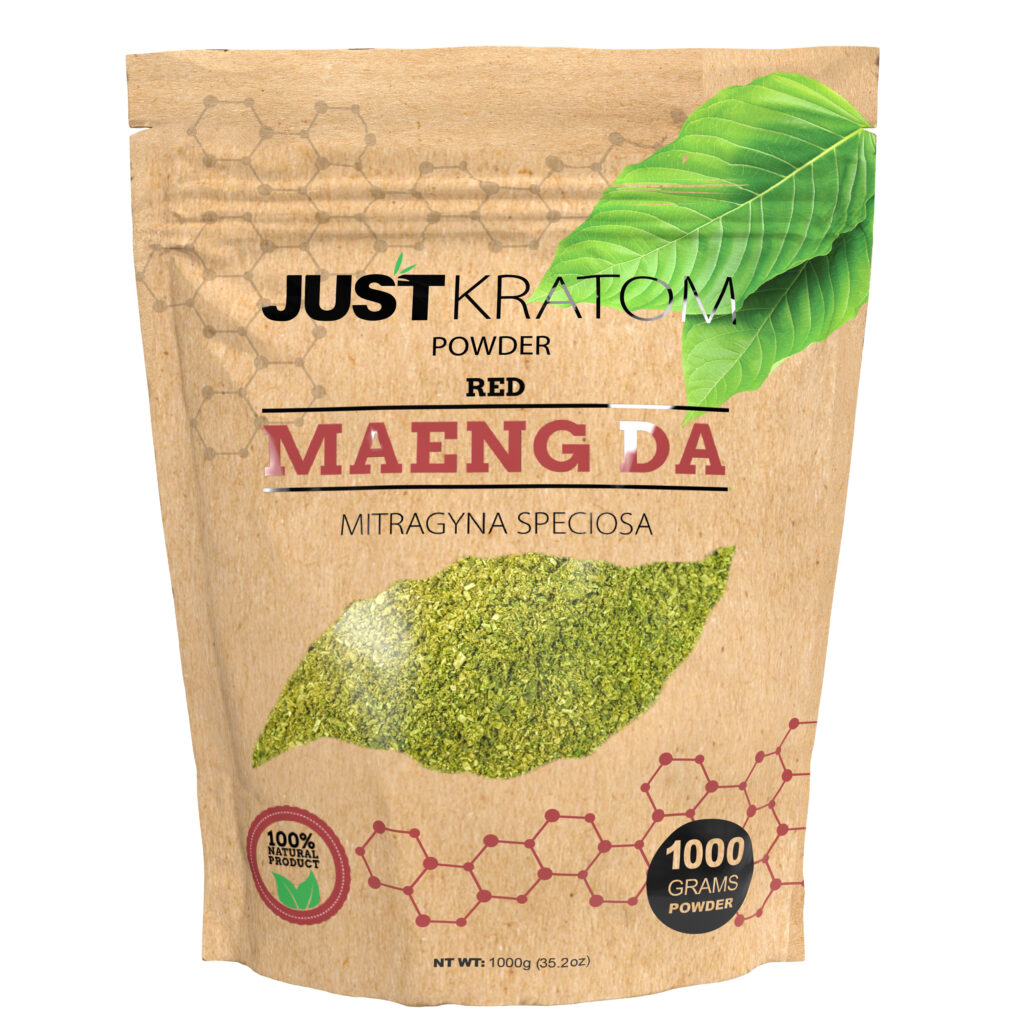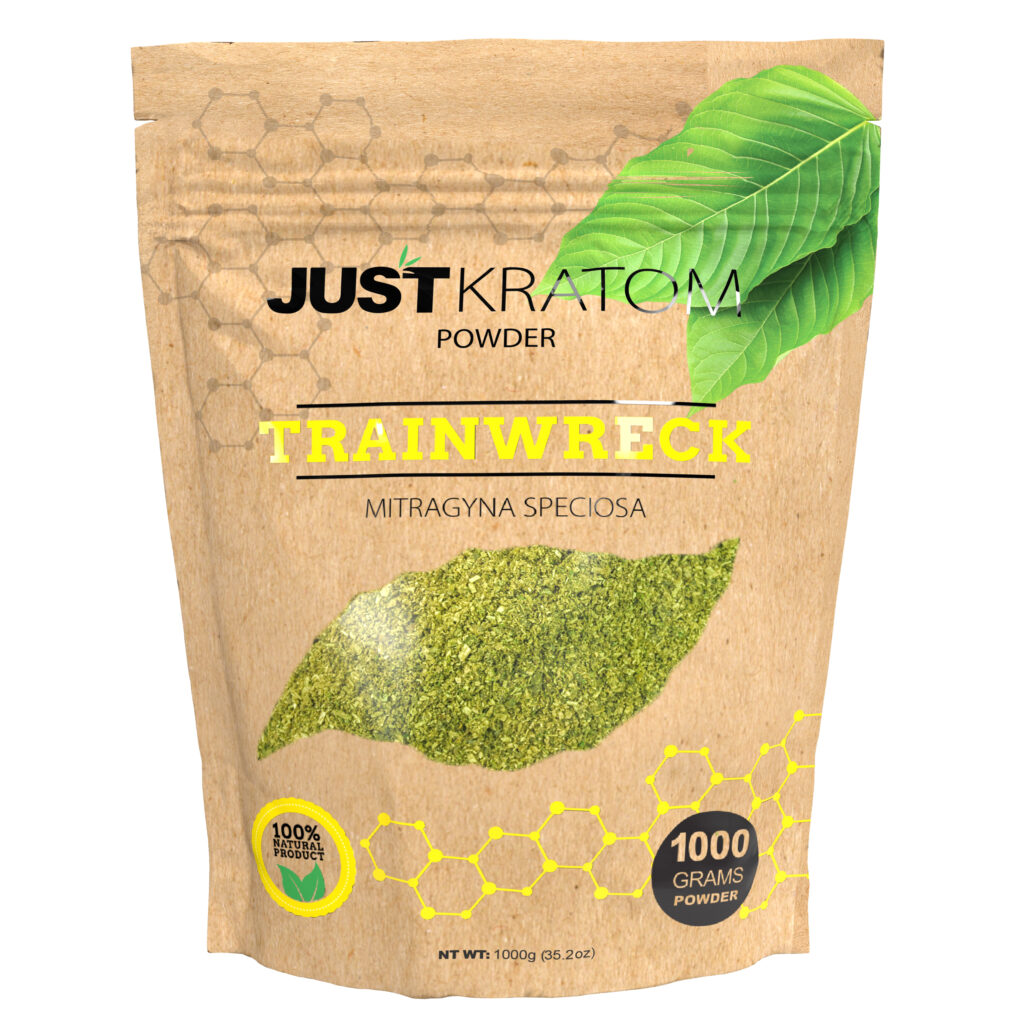Kratom Powder For Chronic Fatigue: Does It Help?
May 31, 2025
What is Kratom?
Kratom, a tropical evergreen tree native to Southeast Asia, has gained attention in recent years as an herbal remedy for various conditions. Its leaves contain alkaloids that interact with opioid receptors in the brain, producing effects ranging from mild stimulation to pain relief and sedation. While traditionally used in some cultures for centuries, kratom’s legality and safety remain debated, particularly its potential for misuse and addiction.
Botanical Origin and Alkaloids
Kratom, a tropical evergreen tree native to Southeast Asia, is known scientifically as Mitragyna speciosa. For centuries, it has been traditionally used in various cultures for medicinal purposes. The leaves of the kratom tree contain a variety of alkaloids, the most prominent being mitragynine and 7-hydroxymitragynine.
- Mitragynine
- 7-hydroxymitragynine
These alkaloids interact with opioid receptors in the brain, producing a range of effects. In lower doses, kratom can stimulate energy and focus, while higher doses may induce pain relief and sedation.
Available Forms and Consumption Methods
Kratom comes in various forms, making it accessible to those seeking its potential benefits.
- Powder
- Capsules
- Tea
- Extracts
Each form offers a different consumption method. Powder can be consumed by mixing it with water or other beverages, while capsules provide a pre-dosed option. Tea is made by steeping kratom leaves in hot water, and extracts are concentrated forms often available in liquid or powder.
Mechanism of Action in Chronic Fatigue
Chronic Fatigue Syndrome (CFS) is a complex disorder characterized by persistent and debilitating fatigue that is not relieved by rest. The underlying mechanisms behind CFS remain incompletely understood, but research suggests a multifactorial etiology involving immune dysfunction, neurotransmitter imbalances, and genetic predisposition.
Potential Effects on Neurotransmitters and Energy Levels
The exact mechanism of action of kratom in relation to chronic fatigue is not fully elucidated. However, its interaction with opioid receptors in the brain may play a role.
Kratom alkaloids, like mitragynine and 7-hydroxymitragynine, bind to these receptors, potentially influencing neurotransmitters involved in energy regulation, mood, and pain perception. Some studies suggest that kratom might modulate levels of dopamine and serotonin, which are implicated in fatigue and mood disorders.
These potential effects on neurotransmitters could contribute to kratom’s reported ability to alleviate fatigue and improve energy levels in some individuals with chronic fatigue syndrome. However, further research is necessary to confirm these mechanisms and understand the long-term consequences of kratom use for managing chronic fatigue.
Influence on Pain Perception and Inflammation
Kratom’s potential impact on pain perception and inflammation stems from its interaction with opioid receptors. These receptors are involved in modulating pain signals and inflammatory processes. By binding to these receptors, kratom alkaloids may interfere with pain transmission and reduce the release of pro-inflammatory cytokines.
While some studies suggest that kratom might have analgesic and anti-inflammatory properties, more research is needed to fully understand its mechanisms of action in these areas.
It’s important to note that kratom’s effects on pain perception and inflammation may vary depending on the dose, individual sensitivity, and other factors.
Scientific Evidence and Research Findings
Scientific evidence regarding kratom’s efficacy for chronic fatigue is still limited. Research findings are often inconclusive due to methodological limitations, small sample sizes, and the complex nature of chronic fatigue syndrome itself.
Studies Supporting Efficacy for Chronic Fatigue

While anecdotal reports suggest that kratom may help alleviate symptoms of chronic fatigue, scientific evidence supporting its efficacy is currently limited.
- Some studies have shown promising results, indicating that kratom might improve energy levels and reduce fatigue in individuals with CFS. However, these studies often suffer from methodological limitations, including small sample sizes and lack of control groups.
- Further research is necessary to confirm these findings and establish the optimal dosage and duration of kratom treatment for chronic fatigue.
It is crucial to consult with a healthcare professional before using kratom, as it can interact with other medications and may have potential adverse effects.
Limitations and Gaps in Research
Scientific research on kratom’s effects on chronic fatigue syndrome (CFS) is still in its early stages. While some studies suggest potential benefits, the evidence is currently limited and inconclusive.
Methodological limitations, small sample sizes, and the complex nature of CFS itself make it challenging to draw definitive conclusions about kratom’s efficacy for managing this condition.
Some studies have indicated that kratom may improve energy levels and reduce fatigue in individuals with CFS, but these findings require further investigation and larger-scale clinical trials to confirm their validity. It is essential to consult with a healthcare professional before using kratom as it can interact with other medications and potentially cause adverse effects.
Research gaps remain regarding the optimal dosage, duration of treatment, long-term effects, and potential risks associated with kratom use for chronic fatigue. More research is needed to fully understand the mechanisms by which kratom might exert its effects on fatigue and pain perception in individuals with CFS.

Potential Benefits for Individuals with Chronic Fatigue
For individuals struggling with the debilitating effects of chronic fatigue syndrome (CFS), exploring potential treatment options is crucial. Kratom, an herbal remedy gaining increasing attention, has been anecdotally reported to alleviate fatigue and improve energy levels in some people with CFS. While scientific evidence supporting these claims remains limited, ongoing research seeks to unravel kratom’s potential benefits and risks for managing chronic fatigue.
Reduced Fatigue and Increased Energy
For individuals living with chronic fatigue syndrome (CFS), the constant exhaustion can significantly impact daily life. Kratom, a plant native to Southeast Asia, has emerged as a potential natural remedy for managing fatigue.
Its alkaloids interact with opioid receptors in the brain, which may influence neurotransmitters associated with energy, mood, and pain perception. By potentially modulating dopamine and serotonin levels, kratom could contribute to reduced fatigue and increased energy in individuals with CFS.
Improved Mood and Cognitive Function
Potential benefits of kratom for individuals with chronic fatigue include improved energy levels and a reduction in fatigue symptoms. Some studies suggest that kratom may also improve mood and cognitive function in those with CFS.

It is important to note that more research is needed to confirm these potential benefits and to understand the long-term effects of kratom use for chronic fatigue.
Individuals considering using kratom should consult with a healthcare professional to discuss potential risks and benefits, as well as any potential interactions with other medications.
Risks and Side Effects of Kratom Use
While kratom shows promise as a potential remedy for chronic fatigue, it is essential to understand the associated risks and side effects. Like all substances that interact with the body’s opioid receptors, kratom carries the risk of dependence and addiction.
Short-Term and Long-Term Health Risks
Short-term side effects of kratom use can include nausea, vomiting, constipation, itching, dry mouth, and dizziness. Higher doses may lead to drowsiness, slowed breathing, and muscle weakness.
Long-term health risks associated with kratom use are not fully understood due to limited research. However, potential risks include liver damage, kidney problems, addiction, withdrawal symptoms, and the development of opioid tolerance.
Kratom’s impact on mental health is also a concern. There have been reports of anxiety, paranoia, hallucinations, and psychosis associated with kratom use, particularly in individuals predisposed to these conditions.
Drug Interactions and Contraindications
While kratom has shown promise as a potential remedy for chronic fatigue, it is essential to understand the associated risks and side effects. Like all substances that interact with the body’s opioid receptors, kratom carries the risk of dependence and addiction.
Short-term side effects of kratom use can include nausea, vomiting, constipation, itching, dry mouth, and dizziness. Higher doses may lead to drowsiness, slowed breathing, and muscle weakness.
Long-term health risks associated with kratom use are not fully understood due to limited research. However, potential risks include liver damage, kidney problems, addiction, withdrawal symptoms, and the development of opioid tolerance.
Kratom’s impact on mental health is also a concern. There have been reports of anxiety, paranoia, hallucinations, and psychosis associated with kratom use, particularly in individuals predisposed to these conditions.
Individuals considering using kratom should consult with a healthcare professional to discuss potential risks and benefits, as well as any potential interactions with other medications.
Kratom can interact with various medications, potentially leading to dangerous side effects. It’s crucial to be aware of these interactions before using kratom.
- Opioid Medications: Kratom’s opioid-like effects can intensify the effects of prescription opioids like oxycodone or morphine, increasing the risk of overdose.
- Benzodiazepines: Combining kratom with benzodiazepines (e.g., Xanax, Valium) can enhance sedation and increase the risk of respiratory depression.
- Antidepressants: Kratom may interact with certain antidepressants, potentially affecting their effectiveness or increasing the risk of serotonin syndrome, a potentially life-threatening condition.
- Blood Thinners: Kratom may affect blood clotting, potentially increasing the risk of bleeding when taken with blood thinners like warfarin.
This list is not exhaustive. It’s essential to consult a healthcare professional before using kratom if you are taking any medications, including over-the-counter drugs and supplements.
Kratom use should be avoided in certain individuals due to potential risks and contraindications.
- Pregnant or Breastfeeding Women: The safety of kratom during pregnancy and breastfeeding is unknown, and it’s best to avoid using it during these periods.
- Children and Adolescents: Kratom has not been studied in children and adolescents, and its potential effects on developing brains are unclear.
- Individuals with Liver or Kidney Disease: Kratom can potentially strain the liver and kidneys. Individuals with existing liver or kidney problems should avoid kratom use.
- People with Opioid Use Disorder:** Kratom’s opioid-like effects make it a risk for individuals with opioid addiction, as it could trigger cravings and relapse.
It is crucial to consult a healthcare professional before using kratom if you have any pre-existing medical conditions or concerns.
Legal Status and Regulations
The legal status of kratom varies significantly around the world. In some countries, it is legal and widely available, while in others it is banned or heavily restricted. Within the United States, kratom’s legal standing is complex, with individual states enacting their own regulations. Some states have outright bans on kratom, while others allow its sale and possession but may impose restrictions on its potency or distribution. The ongoing debate surrounding kratom’s safety and potential for misuse continues to influence legislative decisions and shape its legal landscape.
Varying Legality Across Regions
The legality of kratom varies greatly around the world. Some countries have fully legalized it, while others have banned it outright.
Within the United States, the legal status of kratom is a patchwork, with different states having different regulations.
Some states have completely banned kratom, while others allow its sale and possession but may impose restrictions on the potency or distribution of kratom products.
This complex and evolving legal landscape makes it important to research the specific laws in your region before using kratom.
Safety Considerations for Sourcing and Consumption
Kratom’s legal status varies widely, with different countries and regions having distinct regulations. In some countries, it’s legal and openly available, while others have implemented outright bans or strict restrictions. Within the United States, kratom’s legal standing is particularly complex, as individual states have enacted their own laws. Some states have completely banned kratom, while others permit its sale and possession but may impose limitations on potency or distribution.
When considering using kratom, it’s essential to research the specific laws in your location to ensure compliance.
Safety considerations for sourcing and consuming kratom are crucial due to the potential risks associated with its use. It is vital to obtain kratom from reputable sources that offer quality-tested products. Avoid purchasing from unknown or unreliable vendors, as contaminated or mislabeled kratom can pose serious health hazards.
When consuming kratom, start with a low dose and gradually increase it as needed, monitoring your body’s response closely. Be aware of potential side effects such as nausea, dizziness, and constipation. If you experience any adverse effects, discontinue use and consult a healthcare professional.
It is essential to avoid mixing kratom with other substances that can interact negatively, including alcohol, prescription medications, and other supplements.
Buy Kratom Powder for a natural energy boost
- Xela Rederm Skin Booster Treatments Near Reigate, Surrey - January 28, 2026
- Xela Rederm Skin Booster Treatments Near Cobham, Surrey - January 25, 2026
- Why Vista Edge Vape Has Become A Fan Favorite Among Vapers - January 23, 2026
